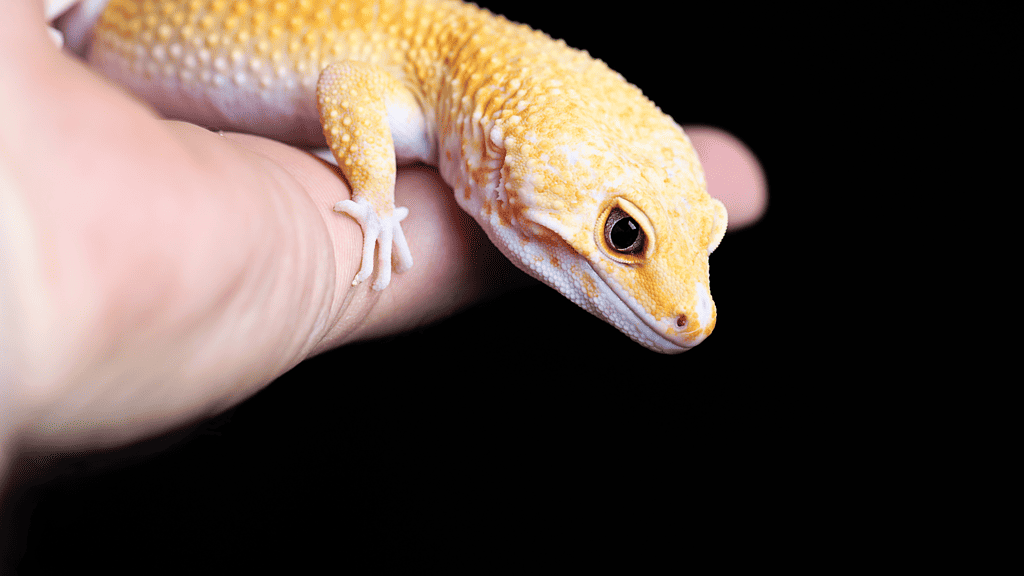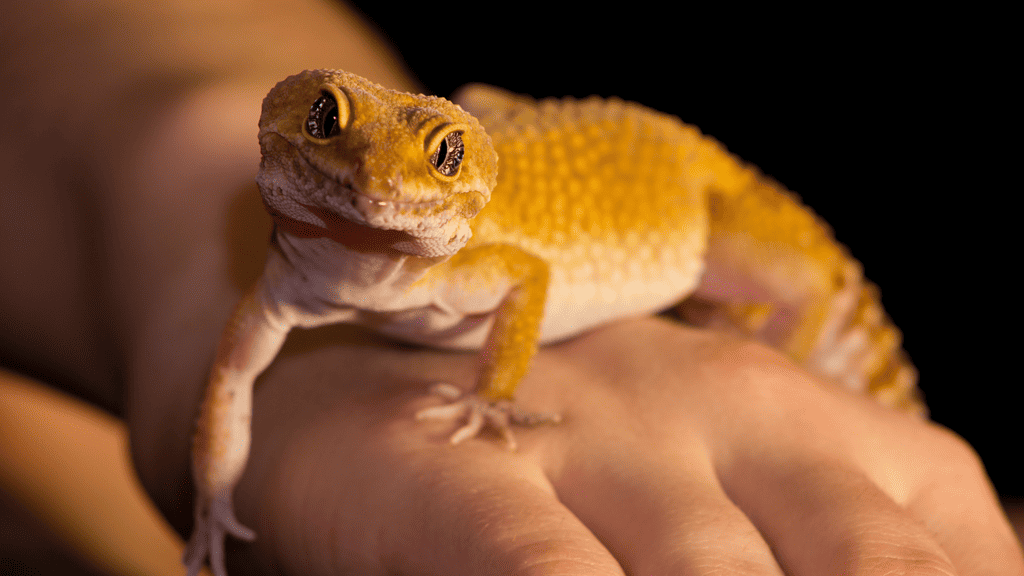If you take one glance at a leopard gecko, you could well find yourself falling in love with it. They have several forms and fascinating designs, and their smile makes them winning pet. Is it true that leopard geckos are social?

The answer is yes. As with any new pet, it will take some time for them to become used to you. However, irrespective of their sexuality or gender, these little reptiles get along great with people and are a joy to have around the house.
You now know these reptiles are amiable, so you may want to buy one. Even though they’re all friendly, no two geckos are alike. Follow these steps to keep leopard geckos and make them as friendly as possible.
Leopard Geckos In Nature
Leopard Geckos seldom interact with other geckos in the wild unless they’re mating. Their native habitat, which consists of vast, mountainous deserts, is well-suited to their solitary way of existence. It makes it fairly simple for geckos to go for long periods without coming across another one.
There is, of course, also a self-protective element to this kind of isolated behavior. Leopard Geckos have a variety of natural predators, including snakes, foxes, birds, and other big reptiles. They employ their sharp senses to detect danger and are constantly ready to flee.
Are Leopard Geckos Social?
Leopard geckos are isolated creatures that prefer to live alone rather than with another gecko. But they are social, and they can communicate with other animals of their own kind and the things around them.
Besides giving your new pets names, it’s good to think about how friendly they are. When kept close to one another, leopard geckos are likely to become anxious. This is due to the fact that they are nocturnal creatures and can be possessive of their territory, particularly males. However, once they reach maturity, leopard geckos like to be alone.
Even though leopard geckos have a calm temperament, it is not natural for them to live in groups like other gecko species do. The only time a female leopard gecko and male leopard gecko will interact with one another is during mating season. And after mating, they don’t care for their hatchlings.
Geckos Live Long and Happy Lives If You Care For Them
Creating a comfortable area for a leopard gecko that loves to be alone might need a lot of time. Most reptile owners realize that their gecko enjoys being alone.
If properly cared for, geckos may live for a very long period; some have been known to reach around 20 years of age. As with any other kind of pet, getting a gecko requires a significant time and financial investment.
During those years, geckos most likely require a lower maintenance level than other pets such as cats and dogs. They eat less, appreciate their own company, but need a clean tank and extra care. Many gecko owners describe a sense of satisfaction from possessing this animal.
Because there are so many gecko species, a lot of people are interested in collecting them. Their markings are pretty unique, which is interesting in and of itself.
Tips to Get to Know Your Leopard Gecko
1. Hand-feeding your Gecko
Manually feeding your gecko helps you create a relationship with it and earns its trust and respect.
To create a good bond between a pet and its owner, it’s best to feed your gecko by hand. This provides them a chance to get to know you and see that you are someone they can trust and come to when they are hungry.
If you’re nervous about holding your leopard gecko, slide or lift the tank cover and feed it piece by piece. Repeat these steps weekly for three to six weeks, depending on how quickly you want your gecko to adjust to its new environment. If you’re uncomfortable feeding it with your hands, you can also let it eat from its food container.
2. Reduce Stress
Even animals experience stress as a natural and inevitable component of life. In particular, excessive stress can create a considerable loss of trust when it comes to leopard geckos. It may make it much more difficult to form a relationship with another individual.
As a beginner, it’s normal to make a few mistakes or think that what you’re doing with your gecko isn’t dangerous. Your gecko has things that might cause it to freak out or avoid situations that could give it fear and anxiety.
3. Keeping a Consistent Schedule
Leopard geckos are nocturnal animals, which some of you may already be aware of. Therefore, they would like to sleep more throughout the day when you are active. Playing with, handling, or feeding your gecko throughout the day while you’re active may be attractive, but doing so might stress it out.
4. Making a Sound
Sounds can be causal factors that can make you feel either happy or sad. This holds true for leopard geckos in the same way as it does for people. To make sure your leopard gecko thinks of you positively, identify yourself with a sound.
Make a sound when you’re having a good conversation. It might be speaking its name, chattering, or a relaxing, non-loud sound. If you produce the same sound in the same way over and over again, your gecko will quickly learn to link that sound with you. When it hears that sound, it will realize you’re not a threat and have come to take care of it.
5. Inexperienced Persons Shouldn’t Handle Your Gecko
Leopard geckos make wonderful additions to families as pets, but if handled by someone without experience, this might terrify the gecko and provide a potential safety risk.
Geckos might be handled too roughly by beginners, children, or anyone who has never worked with one before. Or, if the gecko starts hissing or biting, they might drop them by accident. If relatives and friends exhibit interest in your gecko, let them know how to manage them, about their probable reactions to being handled by a new person, and never let them hold them for too long to reduce their stress.
If your leopard gecko reacts adversely to someone else holding it, gently take it back and make your unique sound to convince it that it’s safe.

Do Leopard Geckos Like To Be Pet?
As a result of all of this, you might be wondering whether or not Leopard geckos make excellent pets. Leopard Geckos prefer being petted and handled; if they trust you, they’ll allow you to hold them.
Like other reptiles, Leopard Geckos can’t feel love or friendship, but almost all of their owners say they have a strong bond of trust and awareness with their pets.
Your gecko won’t jump up and down if they see you like a dog, but they will recognize you and treat you as their owner.
Are Leopard Geckos Social with Other Pets?
In general, leopard geckos kept as pets don’t get lonely, but they need to interact with people to meet certain social needs.
But it’s a different situation when it comes to other leopard geckos. They will exhibit troubling behaviors that indicate they are under a great deal of stress.
One of these is territoriality, in which a gecko demonstrates authority by head bobbing and tail wagging. Other lizards in the aquarium will recognize these signs and behave submissively toward one another.
It is not uncommon for two leopard geckos that are housed together in the same tank to engage in a fight with one another. This is because of struggles for dominance, competition for resources, and problems with mating.
Owners frequently inquire whether numerous leopard geckos may be housed in a single tank. However, this is something that should be avoided as much as possible. There are a few instances where two leopard geckos that grew up together form a partnership, although this is uncommon. Leopard geckos like to live alone. They don’t spend much time with other lizards unless there is food.
